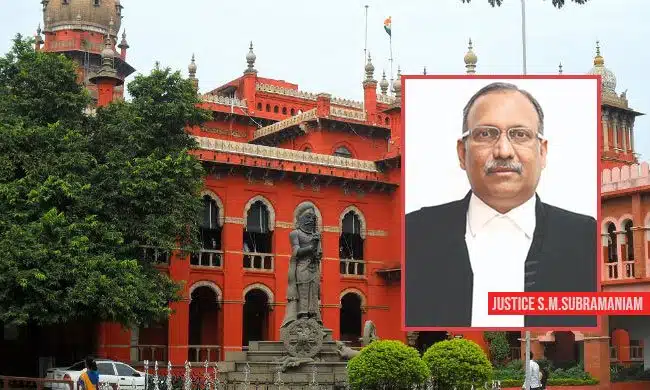SM Subramaniam stressed that tribal women who follow Hinduism and Buddhism should not be barred from inheriting ancestral properties due to section 2(2) of the Hindu Succession Act.
Tamil Nadu’s Madras High Court recently determined that tribal women belonging to tribal communities are entitled to equal shares in their ancestral properties and homes at the same level as their male counterparts under the Hindu Succession Act, 1956. [Saravanan v Semmayee].
As part of the Madras High Court‘s February 22 judgment, Justice SM Subramaniam affirmed an October 2017 trial court ruling that tribal women in Tamil Nadu are entitled to the same percentage as their male family members in the family property.

As part of the appeal, the court was reviewing the orders of the Tribal court, which found that the Tribal court invoked the provisions of the Hindu Succession Act in its decision and held that tribal women were entitled to the same shares in their family property as their male counterparts.
SM Subramaniam stressed that tribal women who follow Hinduism and Buddhism should not be barred from inheriting due to section 2(2) of the Hindu Succession Act.
“It is unclear that such religions and customs are followed in the community of the said party. The Hindu Succession Act does not apply to tribal women. Thus, Sub Section (2) of Section 2 of the Hindu Succession Act 1956 will not prevent daughters living in tribal areas where Hinduism and Buddhism are practiced from inheriting property,” the court said.
As part of the court’s order, the state was instructed to take necessary steps to protect tribal women’s rights through notification to the Central Government.

According to Section 2(2) of the Hindu Succession Act 1956, the state government must issue the necessary notifications through the Central Government to preserve tribal women’s equal property rights.
“ The tribal communities have to give women an equal percentage of land to women in their tribe and the central government has to issue notices to tribes,” the High Court ruled. Invoking Section 2(2) cannot be completely precluded by the Hindu Succession Act,” according to the High Court.
In the matter of inheritances, the legislature did not intend to create any inequality or unconstitutionality in the issue of inheritance for women from tribes, the high court ruled.
Courts must apply the Act when there are no customs of this kind, and no other reason exists to deny equal property rights to women in the absence of such customs.
“There is no rumor of such a custom or practice in the neighborhood where the parties reside in the current instance, and since there is no supporting proof, the Trial Court has rightly concluded that the Hindu Succession Act applies to the parties to the suit,” the court further added.
According to the trial court decision, the Supreme Court upheld the trial court order and directed the Tamil Nadu government to take the necessary steps “to issue a notification under the Hindu Succession Act 1956 under Section 2(2), assuring tribal women in Tamil Nadu their equal property ownership.
The appellant men were represented by Advocate C Jagdish.
In this appeal, respondent party K Siva Subram argued on behalf of two women.













